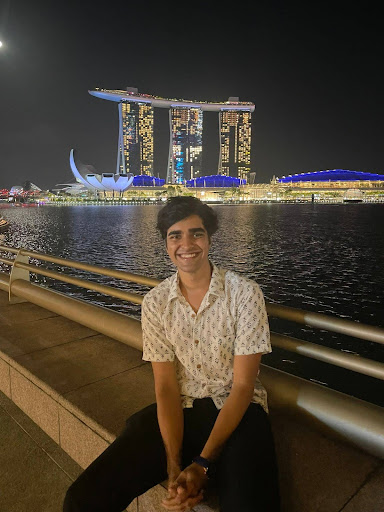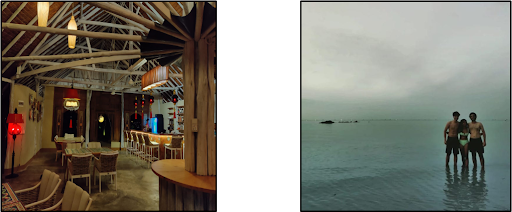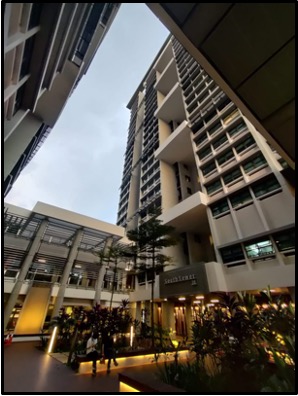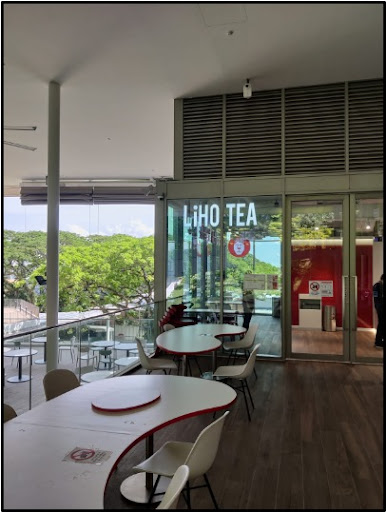
Kaivaly Daga - NUS
Hello, to all the readers! I am Kaivaly Daga, a third-year mech undergrad, and this is my blog on my solo trip to Singapore, where I also ended up doing some work that I am passionate about. Some content might be repetitive for those who attended the internship session or the research charcha session, albeit I’ll try to pen down something more here (edit: it might be too long to satisfy a lot of interesting, curious questions I’ve received over the year).
I had procrastinated horribly during my second-year internship process, and it seems like I haven’t learnt much now, have I? My research stint seemed to have worked out well, so I’m hoping it reflects well in this procrastinated blog too. So, rolling back to the project, it was under Prof. Seeram Ramakrishna at NUS (Nanotechnology department).
Background and securing the project at NUS
The trend wave of internships hadn’t hit me until January 2022 when I started looking at some internship blog posts, which I found to be interesting. Until then, I was happy with how things were progressing, and until December, I invested my time in “exploring” proteomics - some form of cancer research. The skewed semesters never gave us any time to think about how to spend our time in vacations since we never had one :). I realised that three months is a long time, and I definitely had a lot on my mind to choose from. I tried my shot at Quantedge (A Singapore-based quant firm). Unfortunately, no one from IITB made the cut.

A University internship seemed like a very attractive option for me, especially a foreign one, because of the cultural education that comes with it. I wasn’t very clear about what I wanted to pursue in life, and I’m the kind of person who ends up liking everything (Even now, I only have a brief short-term plan). A second-year internship is purely explorative, and I knew I didn’t have to factor in placements while opting for it. My previous research experience made me understand that a well-paced learning opportunity which is flexible is what I wanted for the summer. Honestly, it’s great if you’re confused since it means you’re at least thinking! I had talked with a few seniors, but to my dismay, covid had broken the cycle of offline univ interns. In my phase of procrastination that came next, I did some background research and ironed out my strategy, which I’d start implementing post endsems because of the unfortunate timeline and also because I got this impression that mailing professors is really draining when I spoke with some seniors. I also looked at some university programmes, which are often the logistically easier route but note that you hardly get the same level of flexibility when choosing your professor or the research topic. Regardless, I was too late to apply for any of those programmes. I kept my promise to myself and started mailing to the top universities after looking at the researcher’s profile. Every mail I wrote was specifically tailored, keeping in mind my understanding of the Prof’s research after briefly reading some of their work. I had ruled out all US unis due to potential visa trouble. To my surprise, I got some responses rather quickly; one happened to be from a professor from Oxford. To not put all my eggs in one basket, I kept both options open throughout. That strategy helped me greatly in the end since I later discovered that Oxford’s policies had changed for non-EU UG interns during covid. I told myself that maybe I manifested Singapore while thinking of Quantedge, and Oxford just wasn’t the right place then. Singapore managed to surpass all of my expectations, both in terms of the project work and the experiences I had there.
I was on vacation somewhere else when I got my final confirmation for Singapore after dealing with the tedious paperwork and logistical challenges. I preponed my ticket, and the next day I was on my way to Singapore, waiting to be greeted by mystery, intimation and a ton of learning.
After landing
My dear friend, Aryaman, who was already in Singapore for the internship he got through PT Cell, received me at the airport with a neatly curated box of supplies. We were getting into the subway, and I naturally didn’t have the pass, so Aryaman swiped me in using his card. Yes, the first thing I do in a legally strict country is break the law (oof). I familiarised myself with the campus of NUS (which was easy because of their free shuttle buses; a note to the HA council) and also made it a point to go to a new area of the country/city/state every night. I spent my first week socialising with the people already working on the project and stumbled upon the fact that I was the only intern. “Science is much more social than I had ever realised.” The stuff taught in college was surprisingly helpful, even though I didn’t use any of that knowledge directly. Still, it gave me enough confidence to converse with someone who has been working on such projects for 30+ years while I read up about it while waiting at the airport. Everyone working on the project was extremely kind to me, especially because they hardly expected anything from a second-year UG student. Make sure to use that to your advantage :)

The entire project idea was communicated to me, and I had enough flexibility to contribute in whichever way I felt fit. The professor leading the project is one of the pioneers in the field of nanotechnology and has over 1,50,000 citations with an h-index of 176 (Albert Einstein has one of 118 for reference). Significant advantages of working with an established man of science are that the scale of the project is awe-inspiring, and the team functions like an intricate dynamic network, split up into teams helping each other. A disadvantage would be that the professor himself was out of town for over 90% of the duration because of his busy schedule, so if you’re looking for a personal touch with the leading principal professor and not the other faculty, you might want to reach out to someone who is working on something which hasn’t scaled up yet.
A brief summary of my project would be using nanofibres to make servers more efficient since it dissipates heat better. As futuristic as it sounds, it is also important ecologically. Meta expects a massive rise in their server loads because of their Metaverse initiative by 2050; correspondingly, they’ve funded this multi-million dollar project due to be completed by 2030. After learning the safety protocols, I worked in the lab, did some literature review, and presented my analysis after combining the two.

City Life
Singapore is an expensive country, but beverages are available at a cost comparable to India (Note to Modi). So, obviously, I hogged on it a lot. LiHo tea was one of my favourite eateries on campus since it gave a S$5 drink larger than my bicep and had over 100 drink options. I also interacted with some students and awkwardly reacted to the strange admiration they had for IIT Bombay. An interesting fact is that Singapore students prioritise UK/Australia for their UG education and keep NUS/NTU as their backups (first-world problems, I guess). Did I mention that I love pasta? I’m a vegetarian, so sometimes, pasta was the only option I had if I went to a local food plaza. I splurged on some Michelin-star restaurants, fancy exhibits and also a trip to an Indonesian island!

This is looking more like a food blog, but I can’t help but mention the 50 drink varieties subway has with unlimited refills! From an outsider’s perspective, it seems like people there live a stable but rather monotonous life. We might also want to get some inspiration and derive happiness from certain everyday tasks. When it comes to NUS, the infrastructure and the research facilities are really immaculate. Any guesses on what the most popular cuisine is in their canteen? Indian! They were also following a skewed timeline for freshmen, and they have a fun month-long orientation for them where students are broken up into batches and have guides. They go to specific facilities and perform specific activities, and I noticed a bunch trying their hands on the F1 simulator their racing team owns (note to SMP). The confidence of grasping new concepts, interacting with people who don’t understand your accent/culture and still thrive are the primary skills I’d take back home with me.


Challenges
NUS does have hostel space constraints similar to our insti xD. To amplify the issues, SG had recently passed a law to make airbnbs illegal and renting for under three months to be banned. After spending a few nights at a hotel, I moved in with a couple of working personnel I got in touch with after active searching and with the help of some family friends.
I did notice a form of Xenophobia, not when it comes to professional settings, but people are just more comfortable being friends with their race, which was disappointing. All wasn’t bad, though; a large chunk of the population is slowly coming out of that traditional mindset and interacting more enthusiastically with all. The government openly characterises four main races - Chinese, Thai, Malay and Indian. You will never feel excluded, but one may notice that close friend groups are of people of the same race there.
Final Words
A second-year internship is a great way to dive deeper into something you’re interested in. However, note that rejection from your dream internship is not to discredit your capability. Keep having faith in yourself and keep yourself busy during your vacations because, trust me, they do feel really long after the intense back-to-back sems. Online self-learning, a project with an insti prof, a company internship, a startup… all are valid means of utilising your summer time. You just need to introspect to decide what’s best for you.
Being late did create some potential issues, so I’d advise everyone to start now and look at univ programmes that suit you and if that doesn’t work out, begin mailing professors after that. Asian universities do recognise the brand value of IITs a bit more than their western counterparts, maybe because of our similar grind-set attitudes?
This is my poor adaptation of a 3 idiots quote, “Don’t chase resume points, keep doing things that push you without stressing you out negatively and resume khud ban jayega.”
I had been to Singapore as a tourist earlier. Still, this experience made me feel like I got the essence of the country, its people and their work/academic practices. Another thing I realised is that over the past few years, I enjoyed working on projects of impact (I hate using this buzzword), and I was hardly bothered by the scientific method of approaching it. This has led me to lean towards consulting, at least for a while now. About the future, who knows…?
In case you have any queries (because I know I did): 9970189000